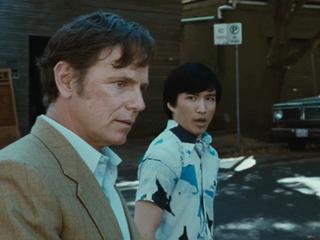
Director: Bruce Beresford, 2009. (PG)
Mao’s Last Dancer juxtaposes the story of dancer Li Cunxin with a comparison of cultures: modern China and America. While the dancing works, the cultural criticism falls flat.
The film is based on the autobiography of Li, who at age 11 was taken from his parents in a poor village in rural China to be sent to Beijing to train with China’s pre-eminent ballet school. What is an honor for his parents is a heartbreak for Li, as he is parted from friends and family to essentially live in a community of dancers.
As he grows and develops, Li appears the only dancer who can think and dance apart from the rest of the communist class. When an American delegation from Texas comes to Beijing as part of a cultural exchange, it is Li whose chemistry with an Australian dancer catches the eye of the director Ben Stevenson (Bruce Greenwood).
 Stevenson pulls strings to get the adult Li (Chi Cao) an opportunity to visit America to dance with the Houston Ballet company. There Li experiences American culture and American women, falling for one of the dancers.
Stevenson pulls strings to get the adult Li (Chi Cao) an opportunity to visit America to dance with the Houston Ballet company. There Li experiences American culture and American women, falling for one of the dancers.Director Beresford has established himself with the Oscar-winner Driving Miss Daisy, but here resorts to a by-the-numbers tear-jerker more fitting to the Hallmark Movie of the week. Greenwood is the principal name actor and does a fitting job as the smarmy and self-absorbed dance director. Chi Cao does lovely work in his ballet performances.
The evils of the Chinese governmental system juxtapose against the evils of American society. Which is worse? Authoritarian control or libertarian freedom? Both have their own problems but freedom at least allows people to make their own decision. With this comes accountability. The Chinese police may have been able to routinely arrest and punish people for the “crimes” of others, such as their children, but the American judicial system makes people responsible for their own actions, a biblical concept.
Copyright ©2011, Martin Baggs

No comments:
Post a Comment